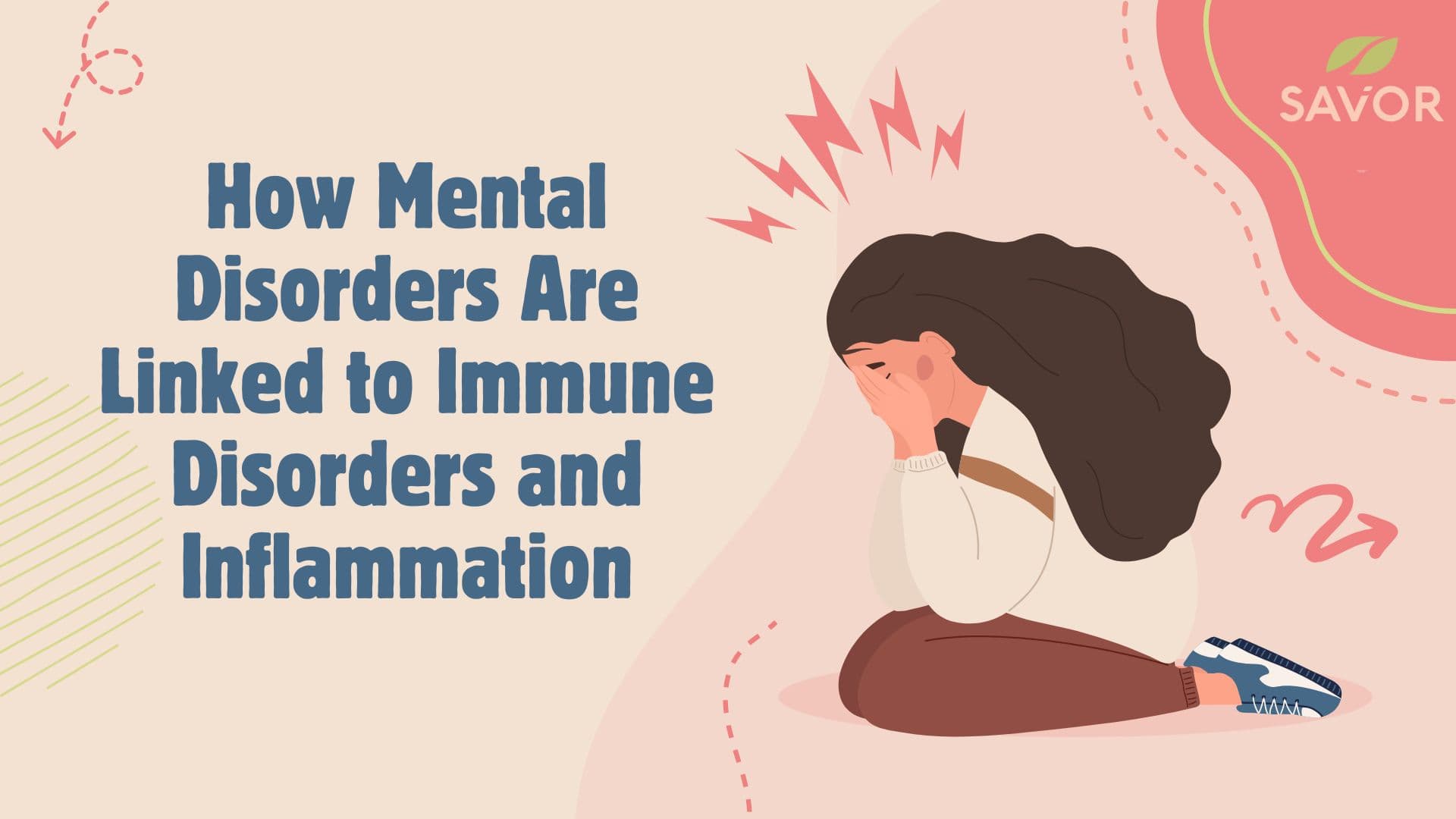How Mental Disorders Are Linked to Immune Disorders and Inflammation
For decades, mental health conditions like schizophrenia and depression were viewed primarily through a psychological lens. But a growing body of research is reshaping that idea, revealing a surprising factor to mental illness: the immune system.

How Mental Disorders Are Linked to Immune Disorders and Inflammation
For decades, mental health conditions like schizophrenia and depression were viewed primarily through a psychological lens. But a growing body of research is reshaping that idea, revealing a surprising factor to mental illness: the immune system.
A groundbreaking new study, led by researchers from the University of Bristol and published in Nature’s Molecular Psychiatry, has uncovered compelling evidence that the immune system plays a significant role in the development of several major mental health disorders. These include schizophrenia, depression, bipolar disorder, and Alzheimer’s disease. The findings suggest that the connection between the body and the brain is far more intertwined than once thought.

29 Immune Proteins Linked to Psychiatric Disorders
Using large-scale genetic and protein structure data, the researchers identified 29 proteins involved in immune function that are also associated with increased risk for a range of mental conditions. Many of these proteins are involved in regulating inflammation and immune signaling—processes traditionally studied in the context of physical illness, not mental health.
These proteins are thought to influence how the immune system communicates with the brain. Chronic or dysregulated inflammation, which may result from abnormal immune protein activity, appears to contribute to changes in brain function that can trigger or worsen psychiatric symptoms.
Dr. Golam Khandaker, a researcher from the study, explained:
“Our study demonstrates that inflammation in the brain and the body might influence the risk of mental health conditions. The findings challenge the centuries-old Cartesian dichotomy between the body and the mind, and suggests that we should consider depression and schizophrenia as conditions affecting the whole person.”

Beyond the Brain: A Whole-Body Perspective
What makes this study especially impactful is its potential to reshape how doctors and researchers understand and treat mental illnesses.
Rather than viewing disorders like depression or schizophrenia purely as brain-based conditions, these findings highlight the importance of considering whole-body systems, particularly the immune response.
This broader understanding may help explain why certain individuals with chronic inflammation or autoimmune issues are more vulnerable to mental health conditions, and vice versa. It also provides a body-based reason for the observed overlap between neurological disorders and systemic inflammatory diseases.

What It Means for Treatment
The research raises hope for new treatment approaches. If specific immune proteins are contributing to psychiatric illness, then targeting these proteins or their signaling pathways could form the basis of new medications or therapies. This could be especially promising for patients who don’t respond well to current psychiatric drugs, which typically target neurotransmitters like serotonin or dopamine.
Furthermore, this line of inquiry encourages clinicians to monitor immune health more closely in patients at risk for mental illness. Early interventions to reduce inflammation—whether through medication, lifestyle changes, or diet—could potentially play a preventative role.

A Paradigm Shift in Mental Health Research
This study is part of a growing movement in neuroscience and psychiatry to reframe mental health as a multi-system issue. As summarized in Neuroscience News and PsyPost, the findings challenge the traditional view that the brain is an isolated organ when it comes to psychiatric disease.
Instead, they support a biopsychosocial-immune model—one that considers how genetics, environmental exposures, immune system function, and inflammation all contribute to mental health outcomes.
The link between immune system proteins and mental health disorders marks a change in how we understand and approach conditions like schizophrenia and depression. By recognizing the role of immune dysfunction and inflammation in psychiatric illness, we open the door to more comprehensive, biologically grounded treatments—and a more hopeful future for those affected.
Sources:
Molecular Psychiatry: Immunological drivers and potential novel drug targets for major psychiatric, neurodevelopmental, and neurodegenerative conditions
University of Bristol: Depression and other mental health conditions linked with immune response, study finds
PsyPost: Scientists link immune system proteins to mental health conditions like schizophrenia and depression
Neuroscience News: Immune System Tied to Mental Health Disorders
Dr Eddie's post on the link between mental disorders and inflammation:
Inflammation and immune proteins may drive mental illnesses like depression and schizophrenia
Love great food and exclusive perks? Sign up as a Savor of Life member today and enjoy a FREE Buffalo Cauliflower with your main dish! Don't miss out—join now!
👉 Claim your reward here: Savor of Life Membership Offer
Planning an event? Let Savor of Life bring the flavors to you! From social gatherings to large celebrations, our catering services offer delicious, high-quality meals tailored to your needs.
📅 Book now and make your event unforgettable! → Savor of Life Catering
Ready to transform your wellness with specially made meals? Sign up for our Savor Transform 10-Day Challenge and enjoy exclusive perks, special offers, and unforgettable meals!